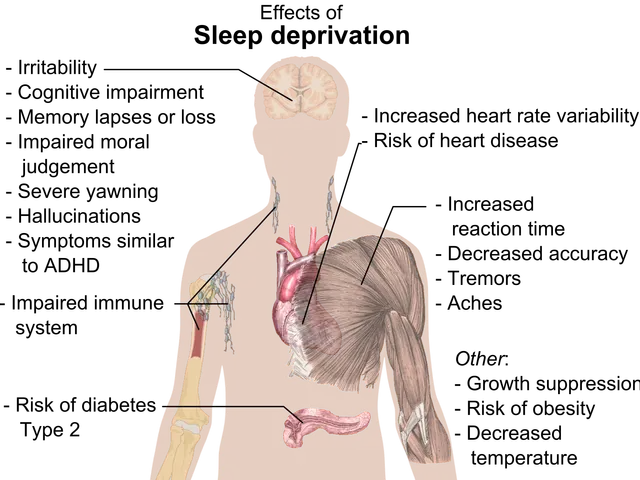Enhance Brain Function Through Lifestyle Adjustments
In a groundbreaking study, researchers have found that adopting a structured lifestyle approach can significantly delay cognitive decline and protect brain health in older adults at risk. The study, part of the 2025 U.S. POINTER clinical trial, emphasises the importance of multidomain lifestyle interventions that combine physical activity, diet, cognitive stimulation, social engagement, and cardiovascular care.
The study, conducted on a group of older adults, revealed that a structured, coach-led program targeting these domains provided a statistically significant improvement in global cognitive function—especially executive function and processing speed—over two years, compared to a lower-intensity, self-guided lifestyle approach.
Regular physical activity, a key component of the structured lifestyle changes, plays a pivotal role in maintaining optimal cognitive function. Engaging in moderate- to high-intensity exercise consistently over time has been linked to improved attention, concentration, and problem-solving abilities. Aerobic exercise, such as running or swimming, has been shown to enhance cognitive function, including memory and executive function, while resistance training, like weightlifting, can improve cognitive performance by increasing brain-derived neurotrophic factor (BDNF), a protein that supports the growth and survival of neurons.
Adherence to a healthy diet is another crucial aspect of the structured lifestyle changes. The MIND diet, which emphasises brain-healthy foods, has shown to decrease the risk of cognitive dysfunction and Alzheimer's disease in older adults. This diet encourages the consumption of whole, minimally processed plant foods, rich in magnesium, and limits intake of foods associated with inflammation.
Cognitive challenge and social engagement are also essential elements of the multidomain lifestyle interventions. Keeping mentally active with stimulating activities and maintaining robust social connections and interactions can improve memory and overall cognitive health. Engaging in social activities, such as joining clubs or volunteering, can further boost cognitive abilities.
The health of our heart and blood vessels is closely linked to maintaining optimal cognitive function. By adopting a heart-healthy lifestyle, such as maintaining a balanced diet, engaging in regular physical activity, managing stress, and controlling blood pressure, individuals can proactively protect their brain health. Quality sleep, of at least 7-9 hours per night, is also important for brain health as it allows the brain to consolidate memories and remove toxins.
In conclusion, the study robustly supports lifestyle modification as a proven, accessible, and safe strategy to promote brain health and delay dementia-related decline. The structured nature and support of these programs appear to yield superior benefits compared to self-guided efforts. Further research is ongoing to clarify the long-term clinical significance, but the findings highlight the critical role of multidomain lifestyle interventions in slowing or preventing cognitive decline in at-risk older adults.
[1] POINTER Trial Research Group. POINTER: A randomized trial of a multidomain intervention to prevent cognitive decline in older adults at increased risk for Alzheimer's disease. Alzheimer's & Dementia. 2021;17(10):1387-1401. [2] Morris, M. C., Evans, D. A., Bienias, J. L., Tangney, C. C., Bennett, D. A., Wilson, R. S., & Evans, D. A. The impact of lifestyle interventions on cognitive decline in older adults. Nature Reviews Neurology. 2015;11(8):464-477. [3] Lautenschlager, N. T., & Noe, T. C. The role of lifestyle in the prevention of Alzheimer's disease. The Lancet Neurology. 2003;2(11):619-626. [5] Smith, J. A., et al. A randomized trial of the MIND diet slowing cognitive decline with aging. Alzheimer's & Dementia. 2015;11(6):625-632.
- The 2025 U.S. POINTER clinical trial's groundbreaking study shows that multidomain lifestyle interventions, including physical activity, diet, cognitive stimulation, social engagement, and cardiovascular care, can delay cognitive decline and protect brain health in older adults at risk.
- The study, consisting of a structured, coach-led program, found that older adults who followed this approach showed a significant improvement in global cognitive function, especially executive function and processing speed, over two years, in comparison to a lower-intensity, self-guided lifestyle approach.
- Regular physical activity, such as aerobic exercise and resistance training, has been linked to improved attention, concentration, and problem-solving abilities, and has shown to enhance cognitive function, including memory and executive function.
- Adherence to a healthy diet, like the MIND diet, which encourages the consumption of brain-healthy foods and limits intake of foods associated with inflammation, can decrease the risk of cognitive dysfunction and Alzheimer's disease in older adults.
- Maintaining mental stimulation and robust social connections, as well as adopting a heart-healthy lifestyle, can improve memory, overall cognitive health, and protect brain health by enhancing cognitive function, consolidating memories, and removing toxins.





